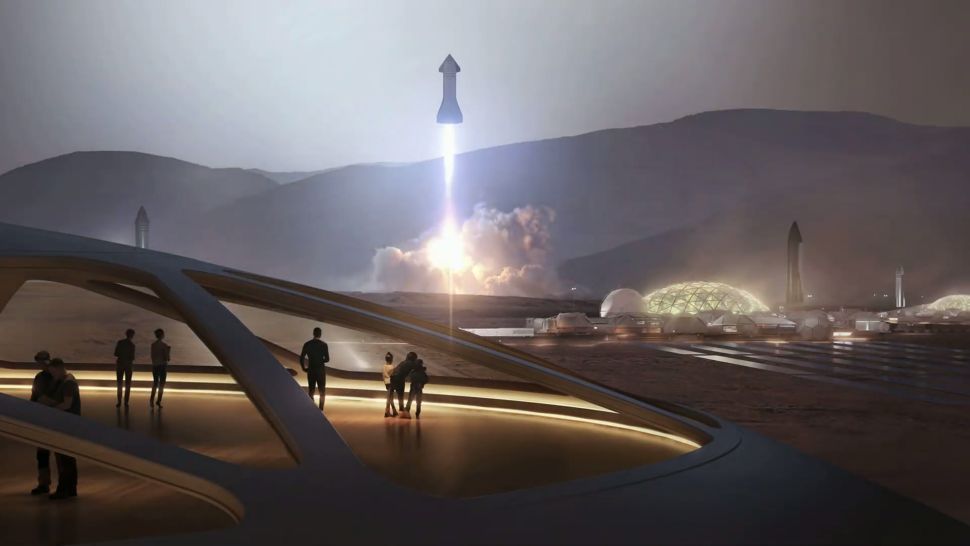Workers Needed in the Expanding Space Industry
Article by Michael Sheetz April 18, 2021 (cnbc.com)
• This is a “most exciting time” to be involved in the private commercial space industry, Steve Isakowitz, CEO of The Aerospace Corporation and former president of Virgin Galactic, told attendees of the America’s Future Series Space Innovation Summit on April 6th and 7th. “I do think there’s opportunities for everybody to participate in the excitement … [and] it’s a great opportunity for the government to really lean in on looking for those public-private partnerships.”
• But Isakowitz says that private and government organizations must do more to tap the next generation of US space workers. “We need to do more [to] expand the candidate pool. We’ve got to make sure that all of America has the benefit of being part of the… opportunities that are out there.”
• The Aerospace Corporation, a federally-funded research and development center and non-profit based in El Segundo, California, focuses on analysis and assessment of space programs for organizations, including NASA, the Air Force’s Space and Missile Systems Center, and the National Reconnaissance Office.
• A report released by The Aerospace Corp urges space industry companies to partner with teachers and educators to focus more on science, tech, engineering and math disciplines. “I think that involves really looking at the curriculum that we teach our students to kind of draw their interest in. We often see that when you go into elementary schools there’s a lot of interest in these fields and the technical fields — and then it sort of drops off pretty quickly when they get into the middle school in high school years,” Isakowitz said.
• Isakowitz noted that internships, apprenticeships and fellowships have been essential to bringing students in and giving them hands-on experience. The Brooke Owens Fellowship helps place undergraduate women at space ventures and the Patti Grace Smith Fellowship helps black students find internships.
• Space Talent is a job board hosted by the investment group Space Capital, listing more than 3,600 openings at space infrastructure companies building spacecraft, rockets and more. Those job openings include a range of disciplines, from accounting to IT, design, manufacturing and more.
• A wave of investment by the private sector is “really driving a lot of the changes we’re now seeing in space,” says Isakowitz, and has given rise to a new generation of private space companies such as Elon Musk’s SpaceX. And according to Isakowitz, this entrepreneurial climate has also brought with it “a new ability to attract the kind of talent and excitement we need to really bring folks into this industry.”
 The growth of space businesses makes this “the most exciting time” to be involved in the
The growth of space businesses makes this “the most exciting time” to be involved in the

industry, but one CEO says private and government organizations must do more to tap the next generation of U.S. workers.
“I do think there’s opportunities for everybody to participate in the excitement … [and] it’s a great opportunity for the government to really lean in on looking for those public-private partnerships,” Steve Isakowitz, CEO of The Aerospace Corporation and former president of Virgin Galactic, told attendees of the America’s Future Series Space Innovation Summit. The event ran on April 6 and 7.
“We need to do more and expand the candidate pool — we’ve got to make sure that all of  America has the benefit of being part of the STEM, K-12, opportunities that are out there,” he added, referring to the academic discipline that includes science, tech, engineering and math.
America has the benefit of being part of the STEM, K-12, opportunities that are out there,” he added, referring to the academic discipline that includes science, tech, engineering and math.
The Aerospace Corporation, based in El Segundo, California, is a federally-funded research and development center and non-profit.
The corporation focuses on analysis and assessment of space programs for organizations, including NASA, the Air Force’s Space and Missile Systems Center, and the National Reconnaissance Office.
Isakowitz’s comments coincided with The Aerospace Corp’s release of a report titled “Developing Future Space Workers.” From the report, he highlighted that he believes the space industry can partner with teachers and underrepresented groups.
FAIR USE NOTICE: This page contains copyrighted material the use of which has not been specifically authorized by the copyright owner. ExoNews.org distributes this material for the purpose of news reporting, educational research, comment and criticism, constituting Fair Use under 17 U.S.C § 107. Please contact the Editor at ExoNews with any copyright issue.

